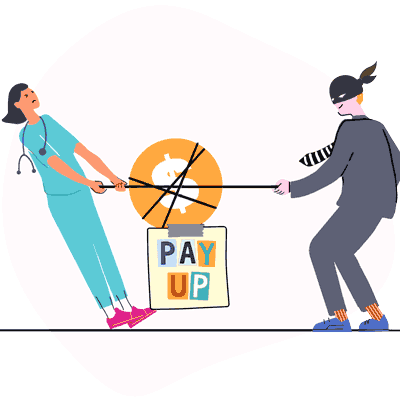Data Reveal Importance of Second Review Appeal for Providers
The claims administrator’s Bill Review does not always recommend the correct reimbursement on the first try. Our second review appeal data reveal a staggering amount of revenue that — without provider action — would be lost due to bill review errors.
As of this writing, DaisyBill clients have submitted 393,947 requests for second review appeals. From those appeals, our clients collected $28,668,998.82 in additional reimbursement.
Sadly, it’s a provider’s responsibility to resolve such errors. If a provider wants correct reimbursement for treating injured workers, the provider must check payment amounts against Official Medical Fee Schedule (OMFS) reimbursement rates. When the numbers don’t add up, the provider must take the necessary steps to secure compensation.
The Second Review Appeal Process
As we’ve bemoaned before, the workers’ comp system defaults to the payor’s advantage.
To appeal payment disputes caused by payor errors requires the provider to invest time and resources to correctly and timely manage the appeal process. Essentially, if the provider takes no action, the automatic outcome of every payment dispute is provider loss of revenue.
First, a provider must navigate the complexities of the OMFS and workers’ comp rules to determine if a bill is accurately reimbursed. Then, if the claims administrator incorrectly denies or reduces reimbursement, the provider must request a second review appeal, subject to the following requirements:
- Timeliness: A second review appeal must be submitted within 90 calendar days from receipt of the Explanation of Review (EOR).
- Format: The second review appeal must be submitted using either a modified original bill or the DWC Form SBR-1. (We strongly recommend the DWC Form SBR-1).
- Delivery: The second review appeal must be submitted by the same delivery method (i.e., paper or electronic) as the original bill.
- Reason: Providers must articulate the reason the reimbursement is incorrect.
- Documentation: Providers must include all relevant supporting documents
That’s no small amount of work to simply obtain correct, state-mandated compensation for services rendered. But it’s necessary work, lest providers lose potentially thousands of dollars.
Revenue via Appeals
This millions recovered with the help of our technology is great news for our clients, but a troubling sign for providers who lack adequate Revenue Cycle Management (RCM) tools for workers’ comp.
Blatant pitch alert: we make it very easy, with software that automatically detects erroneous payments, alerts the provider, and allows instant second review appeal submission. Other providers may not have the tools to correct underpayment so easily. While we celebrate the millions recovered by our clients, how many millions were lost by other providers?
Because second review appeals are time-consuming (especially in the absence of dedicated software for that purpose), providers are not always equipped to fight the constant battle for correct reimbursement. That means lost revenue, and payor noncompliance left unaddressed.
It also means fewer providers willing to put up with the aggravation, and therefore fewer options for injured workers.
When treating employees is prohibitively burdensome, it’s a lose-lose for providers and employers. Hopefully, provider insistence on proper reimbursement, coupled with advances in RCM, will lead to a more efficient workers’ comp industry.
Until then, providers must refuse to tolerate improper reimbursement.
DaisyBill makes protecting your revenue easier, faster, better. With automatic payment tracking, instant SBR’s, and Independent Bill Review (IBR) resources, securing proper reimbursement doesn’t have to be such a hassle. Schedule a free demonstration today.
REQUEST DEMO
DaisyBill provides content as an insightful service to its readers and clients. It does not offer legal advice and cannot guarantee the accuracy or suitability of its content for a particular purpose.



